Abstract
Five healthy volunteers were exposed by inhalation to triethylamine (TEA; four or eight hours at about 10, 20, 35, and 50 mg/m3), a compound widely used as a curing agent in polyurethane systems. Analysis of plasma and urine showed that an average of 24% of the TEA was biotransformed into triethylamine-N-oxide (TEAO) but with a wide interindividual variation (15-36%). The TEA and TEAO were quantitatively eliminated in the urine. The plasma and urinary concentrations of TEA and TEAO decreased rapidly after the end of exposure (average half time of TEA was 3.2 h). There was an excellent association between air levels of TEA and the urinary concentrations in samples obtained within two hours of the end of exposure. Thus the urinary level of TEA taken in this period is useful as a biological monitoring of exposure. An air concentration of 10 mg/m3 corresponds to an average urinary concentration of about 40 mmol/mol creatinine (at sedentary work).
Full text
PDF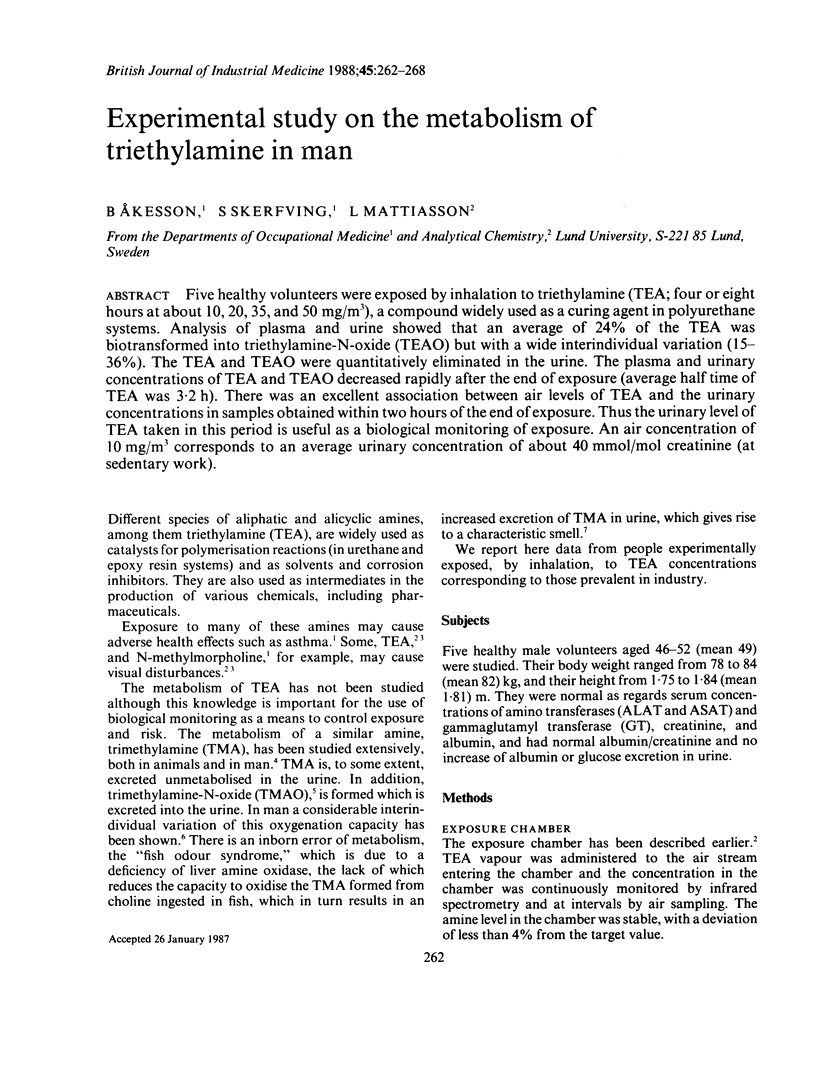
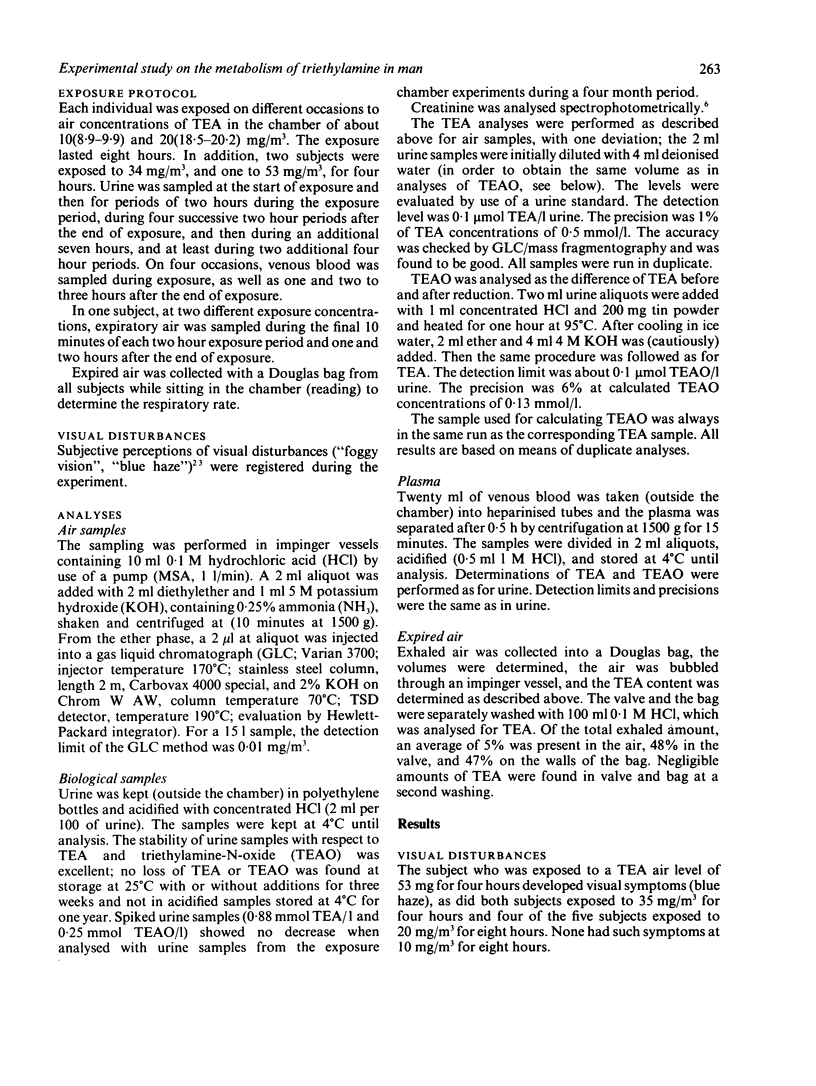
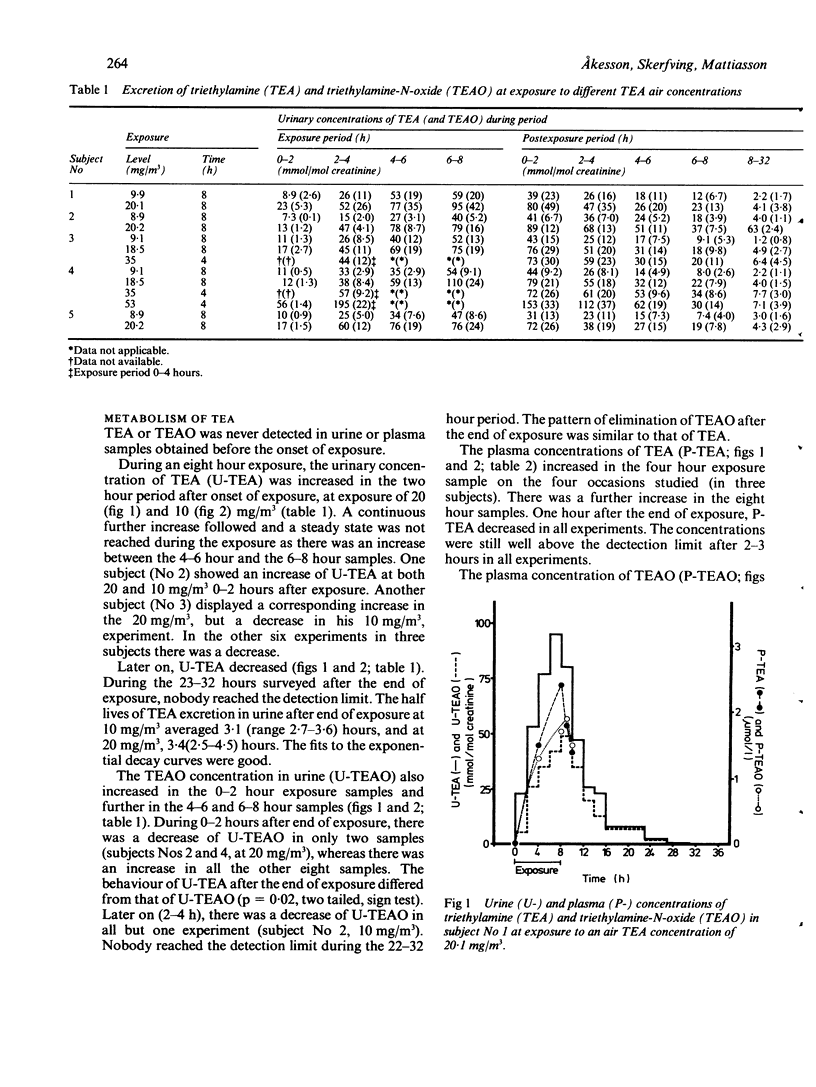
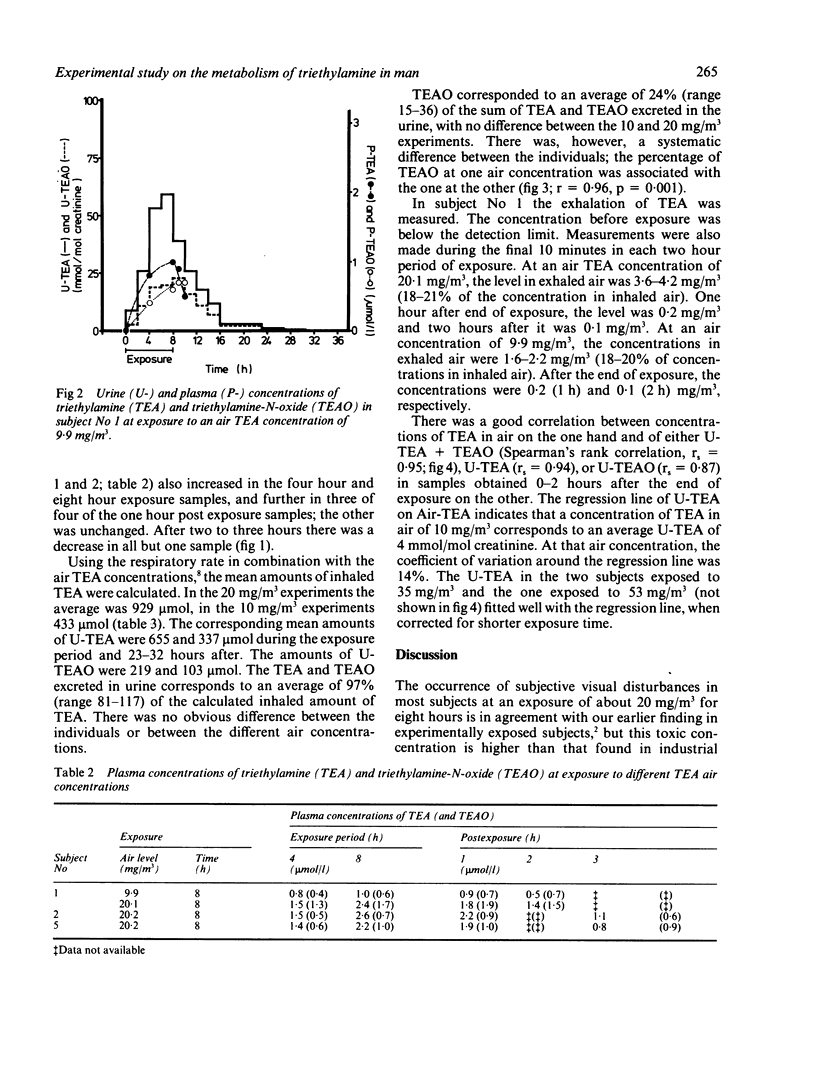
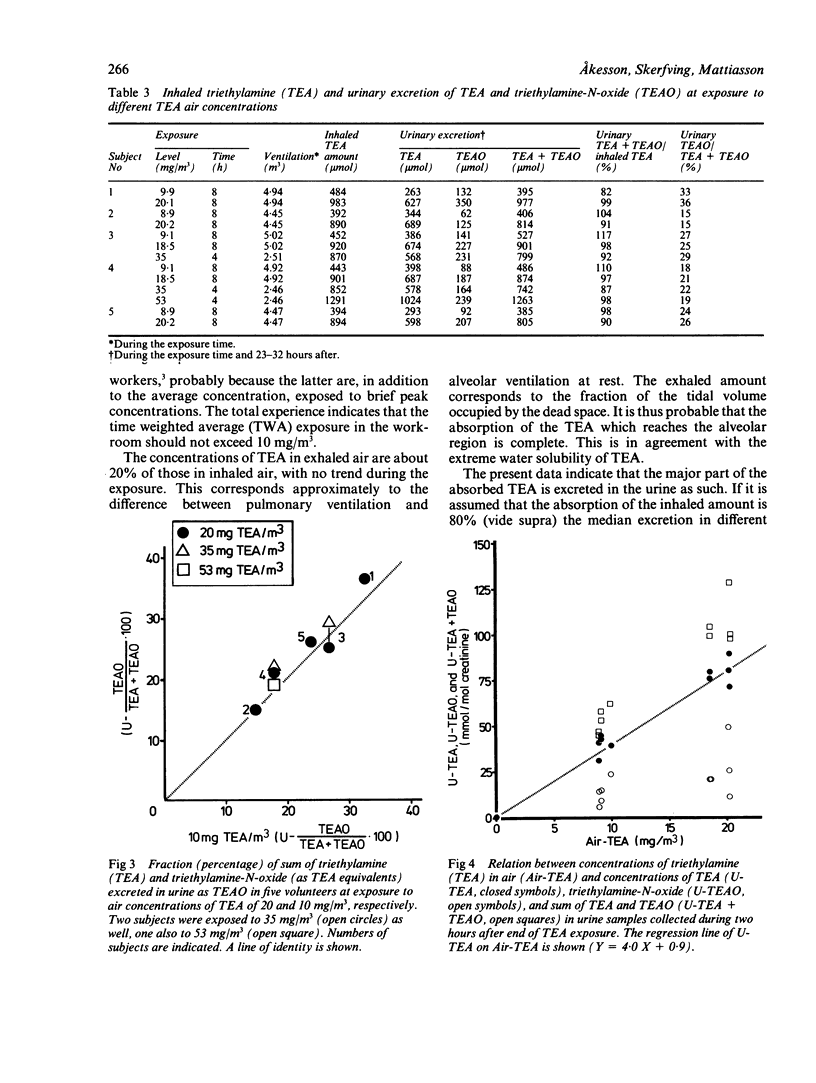
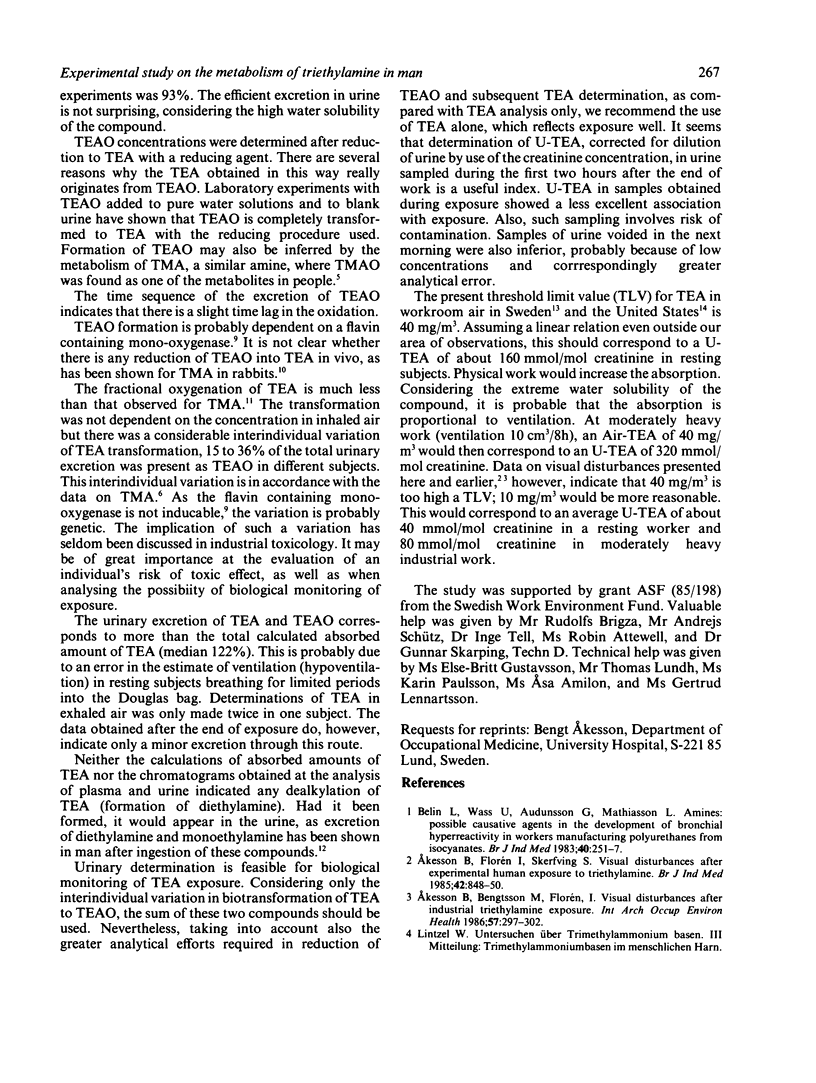
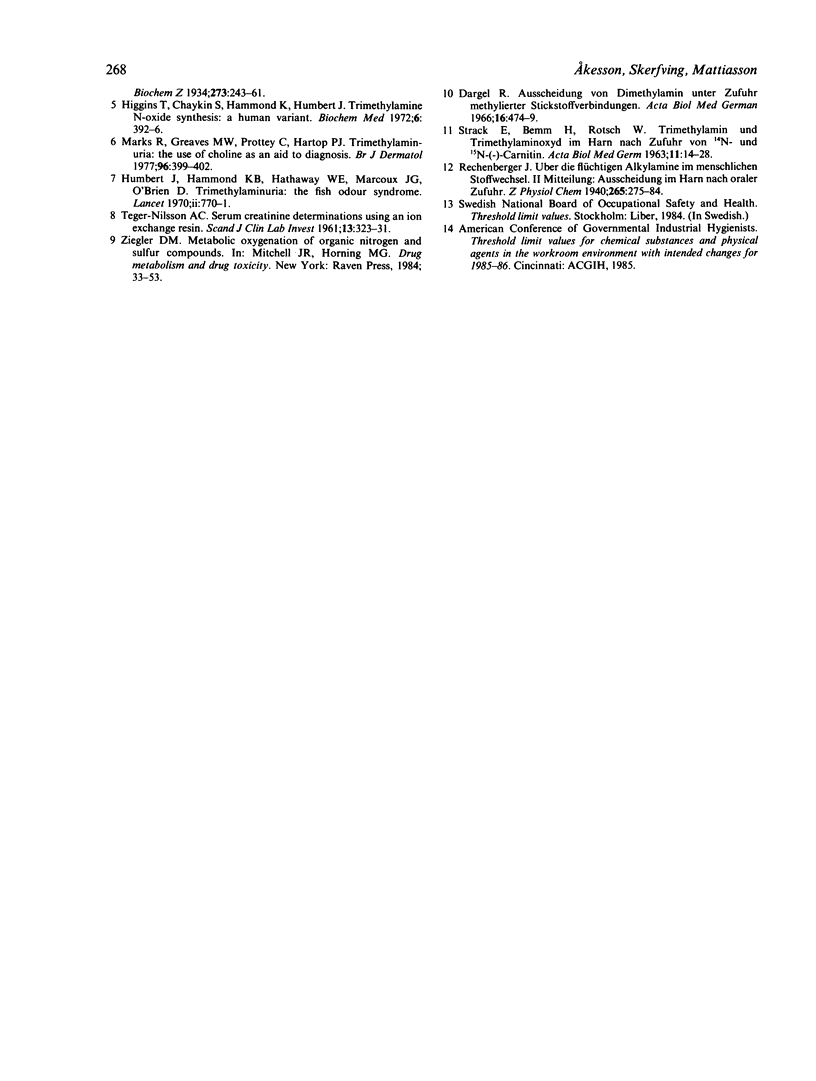
Selected References
These references are in PubMed. This may not be the complete list of references from this article.
- Akesson B., Bengtsson M., Florén I. Visual disturbances after industrial triethylamine exposure. Int Arch Occup Environ Health. 1986;57(4):297–302. doi: 10.1007/BF00406184. [DOI] [PubMed] [Google Scholar]
- Belin L., Wass U., Audunsson G., Mathiasson L. Amines: possible causative agents in the development of bronchial hyperreactivity in workers manufacturing polyurethanes from isocyanates. Br J Ind Med. 1983 Aug;40(3):251–257. doi: 10.1136/oem.40.3.251. [DOI] [PMC free article] [PubMed] [Google Scholar]
- Higgins T., Chaykin S., Hammond K. B., Humbert J. R. Trimethylamine N-oxide synthesis: a human variant. Biochem Med. 1972 Aug;6(4):392–396. doi: 10.1016/0006-2944(72)90025-7. [DOI] [PubMed] [Google Scholar]
- Humbert J. A., Hammond K. B., Hathaway W. E. Trimethylaminuria: the fish-odour syndrome. Lancet. 1970 Oct 10;2(7676):770–771. doi: 10.1016/s0140-6736(70)90241-2. [DOI] [PubMed] [Google Scholar]
- Kesson B. A., Florén I., Skerfving S. Visual disturbances after experimental human exposure to triethylamine. Br J Ind Med. 1985 Dec;42(12):848–850. doi: 10.1136/oem.42.12.848. [DOI] [PMC free article] [PubMed] [Google Scholar]
- STRACK E., BEMM H., ROTZSCH W. TRIMETHYLAMIN UND TRIMETHYLAMINOXYD IM HARN NACH ZUFUHR. Acta Biol Med Ger. 1963;11:14–28. [PubMed] [Google Scholar]


